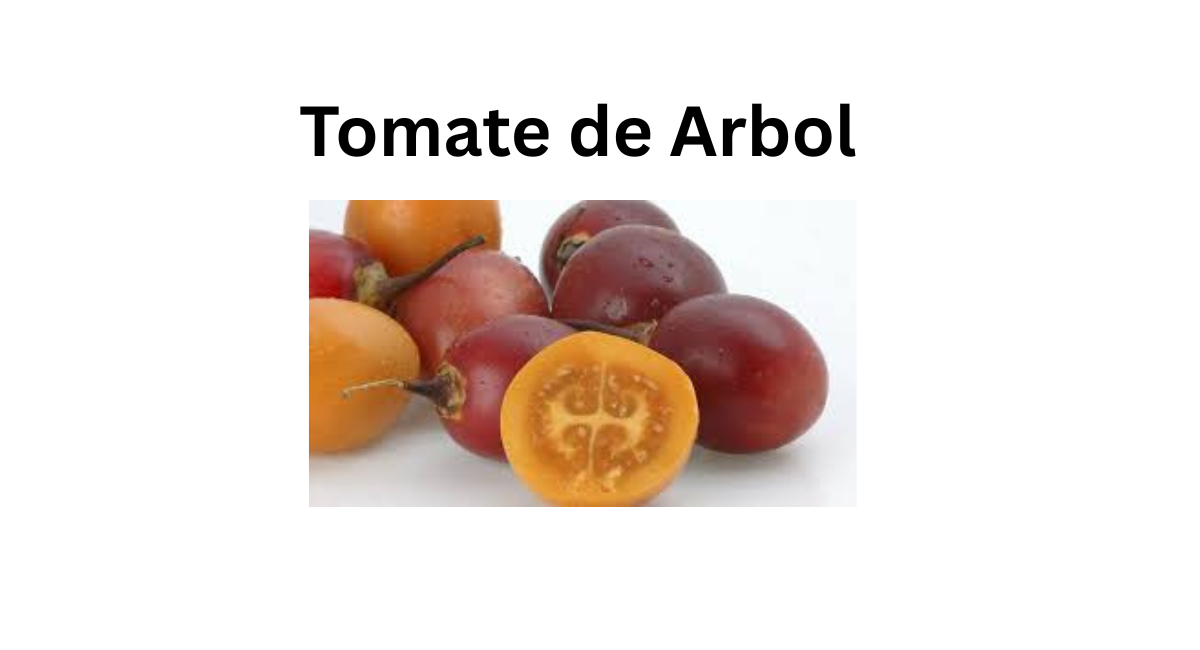Introduction:
What Is Tomate de Arbol?
If you haven’t yet met the brightly colored, sweet-tangy fruit known as tomate de arbol, you’re in for a nutritional surprise. Also known as tree tomato or tamarillo, this South American tropical fruit is native to Ecuador, Colombia, and Peru and has been prized for generations both for flavor and medicinal use.
The smooth, shiny, oval-shaped tree tomato comes with deep purple to red skin. The flesh inside is juicy, and there are black edible seeds like a tomato, but tasting like a combination of the tomato, the passion fruit, and citrus.
Don’t let its size fool you this small fruit packs a concentrated dose of healthy health benefits. From boosting your cardiovascular well-being to supporting immunity, here are 10 incredible reasons why you need to add tomate de arbol to your diet today.
Packed with Antioxidants
Tomate de arbol is rich in antioxidants, specifically anthocyanins, flavonoids, and vitamin C. These counteract free radicals within the body, thus fighting oxidative stress one of the leading reasons for aging, chronic diseases, and cancer.
Consuming antioxidant-rich food like tamarillo can assist:
Healthier skin
Improved cellular repair
Reduced inflammation
Brain health and neural protection from neurodegenerative diseases are also enhanced by antioxidants.
Boosts Immunity
Because of its rich vitamin C content, tomate de arbol is credited with the task of enhancing the immune system function. One fruit provides a huge portion of your daily needed vitamin C, which:
Promotes the production of white blood cells
Enhances the body’s ability to fight infection
Assists in the healing of wounds
It’s a great supplement to your diet during cold and flu season or while recovering.
Facilitates Weight Management
Trying to lose some extra weight or maintain a fit shape? Tamarillo has got you covered. The fruit is:
Low calorie (under 40–50 calories per fruit)
High fiber content so you feel fuller for longer
Packed with nutrients and no added empty fats or sugars
Even the sweet-but-tart flavor will make you love it as a great substitute for sugary foods or desserts.
Good for the Heart
Tree tomato is good for your heart in several ways. Its potassium regulates blood pressure, and its fiber and antioxidants improve cholesterol levels.
Benefits:
Lower LDL (bad cholesterol)
Increased HDL (good cholesterol)
Improved blood circulation
By incorporating tamarillo into your weekly diet, you can lower your risk of heart disease and stroke.
Healthy Vision
The fruit is packed with a solid dose of vitamin A and beta-carotene, both eye-friendly compounds. The nutrients assist:
Protect against macular degeneration
Maintain night vision
Reduce the risk for age-related vision problems
If you spend long hours sitting in front of screens or if you suffer from dry eyes, tomate de árbol can naturally improve your vision.
Controls Blood Sugar
Despite its natural sweetness, tamarillo has a low glycemic index, making it diabetes-friendly and blood sugar safe for those tracking their blood glucose. Tamarillo fiber slows down the body’s absorption of sugar, therefore preventing spikes and crashes.
Daily consumption can help:
Control blood sugar levels
Improve insulin sensitivity
Suppress sugar cravings
As with anything, always refer to your doctor before making extreme changes to a diabetic diet.
Supports Healthy Digestion
Fiber is important to a healthy digestive system, and tomate de árbol has an adequate amount. Its fiber helps:
Avoids constipation
Keeps the gut microbiome healthy
Regulates bowel movements
The fruit’s mildly acidic juice can also activate digestive enzymes, thus it is an excellent natural remedy for sluggish digestion.
Detoxification Support
Tree tomato is naturally hydrating and sustains kidney and liver function to support body detoxification. Antioxidants and vitamin C contained in the fruit trigger the body to:
Purge toxins
Purify the blood
Increase liver enzyme activity
This fruit, being a natural nutrient-rich detoxifier, is excellent to add to smoothies and juices for one who wants to have a natural detox booster.
Inflammation reducer
Chronic inflammation is the basis of most modern diseases—everything from arthritis to heart disease and even depression. Tomate de árbol’s phytochemicals, including anthocyanins and phenolics, have anti-inflammatory activity.
The advantages could be:
Relief of joint pain
Fewer muscle soreness
Help in managing inflammatory illnesses
This makes the fruit ideal for people who are living an active life or inflammatory illnesses like arthritis.
Healthy Skin and Hair
The vitamins and minerals in tomate de árbol don’t just function inside your body—but can also enhance your outside radiance. Vitamin A and C activate:
Collagen production for tighter, more toned skin
Fast cell turnover to give your skin the glow
Hair follicles and reduced hair loss
Certain natural beauty treatments in South America even use tamarillo extract in skin and hair treatments due to its regenerating nature.
How to Eat Tomate de Árbol
Tomate de arbol is so versatile and versatile to use in a range of delicious ways:
Raw: Scrape out flesh and use with a pinch sugar or salt.
Juiced: Blend with water or other fruit like pineapple or orange.
Cooked: Incorporate into chutneys, salsas, or sauce for fish and meats.
Desserts: Blend with smoothies, yoghurt, or bake in cakes and tarts.
Some people prefer to peel the skin first, as it is slightly bitter.
Conclusion:
A Small Fruit with Big Benefits
Tomate de árbol is not as widely known as apples or bananas, but its health benefits easily rival if not top many more well-known fruits. With vitamins, antioxidants, and fiber, this tropical superfruit can:
Boost immunity
Protect your heart
Improve digestion
Enhance skin and vision health
Including tamarillo in your daily diet is a simple, tasty way to fuel overall health.
Call to Action:
Ready to unleash the power of tomate de arbol?
Get it at Latin American markets, specialty food stores, or purchase online. Add it to your next salad or smoothie and discover why this underrated fruit deserves a spot on your plate.

